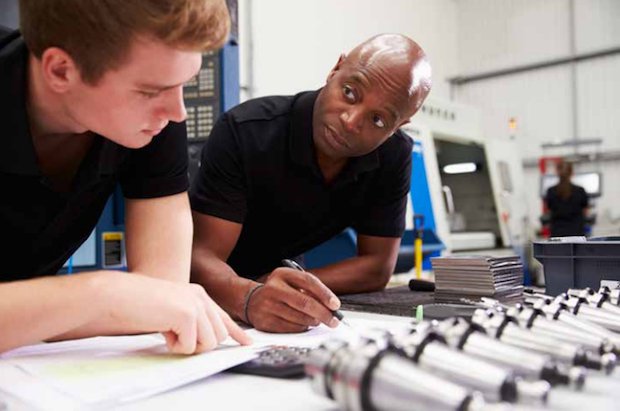
As advanced manufacturing methods are reshaping industries, additive manufacturing (AM) continues to be a key driver of innovation, efficiency, and competitiveness. New York Governor Kathy Hochul’s recent launch of the $200 million ON-RAMP initiative represents a transformative moment for manufacturing in the state and an opportunity to advance AM adoption. With the U.S. facing a projected shortage of 2.1 million manufacturing workers by 2030, ON-RAMP has the potential to bridge the skills gap, train the next generation of workers, and fuel AM growth. However, for ON-RAMP to succeed, it must consider AM as one of the key technologies of advanced manufacturing and meet the AM sector’s unique challenges.
Driving workforce development
ON-RAMP’s emphasis on workforce development addresses the increasing demand for skilled labour, which, as is true for most advanced manufacturing technologies, is especially true in AM. As technologies continue to evolve, curricula and training programs must be adaptable. While AM plays a central role, it is one of many advanced manufacturing technologies, and it should not be taught in isolation. Training programs need to integrate AM with other manufacturing methods to provide a well-rounded understanding of the entire manufacturing process. In order to ensure a well balanced and skilled workforce, the ON-RAMP initiative ensures that workers are equipped with comprehensive skills, covering the latest advancements in manufacturing—ranging from new materials and software to advanced hardware—while also fostering collaboration with other relevant technologies.
It seems that one of ON-RAMP’s key strengths is its commitment to building regional training centres that act as education hubs. These centres must collaborate closely with educational institutions, industry leaders, OEMs, and venture partners to ensure programs remain relevant and financially sustainable. True collaboration is essential because the skills needed today, especially in AM, may be outdated in a few years.
By fostering a dynamic regional learning environment and continuously evolving the curricula, ON-RAMP can create a workforce prepared to meet the changing demands of the AM industry.
Additionally, ON-RAMP’s potential to incentivise AM business development is critical. While workforce training is essential, companies must also create opportunities to adopt AM.
By supporting workforce development and business growth, ON-RAMP can position New York as a frontrunner in AM, attracting businesses and talent. The interconnectedness of education, financial backing, and industry is vital for sustaining long-term growth in this field.
The high stakes of a skills shortage
Failing to address the skilled labour shortage in manufacturing could have far-reaching consequences, particularly for innovation, sustainability, and supply chain resilience. Without a workforce capable of understanding and deploying innovative technologies like AM, the U.S. risks falling behind in key manufacturing areas. Innovation will stagnate if companies cannot implement the advanced techniques that AM offers, from lightweight, sustainable design to rapid prototyping.
Moreover, a lack of skilled AM labour would hinder reshoring efforts. One of AM’s significant advantages is its ability to produce complex and high value parts locally, reducing reliance on fragile global supply chains. Without trained professionals to operate AM systems, companies will struggle to fully leverage these capabilities.
AM offers unique opportunities to reshape the future of engineering talent, particularly in regions with rich history of manufacturing. The initiative’s focus on creating accessible career pathways for both entry-level and midskill workers is crucial in addressing the looming labour shortage.
Training programs under ON-RAMP can equip workers with specialized AM skills. Supported by industry partnerships, these programs can provide hands-on experience with cutting-edge technologies to prepare workers for current and future challenges.
The knock-on effect of AM’s potential to foster entrepreneurship is often overlooked. As new workers enter the field with specialised skills, many will have the opportunity to create their own businesses, driving innovation and economic growth. The small manufacturing shops that can adopt AM can distinguish themselves from competitors, accessing new markets and developing novel solutions for their clients.
ON-RAMP’s support for workforce development will thus have a ripple effect, helping to cultivate a new generation of entrepreneurs.
A bold vision for AM’s future
The ON-RAMP initiative represents a critical opportunity for AM. By investing in workforce development, supporting business growth, and fostering collaboration between education and industry, ON-RAMP can address the skilled labour shortage while positioning New York—and the U.S.—as a leader in advanced manufacturing.


